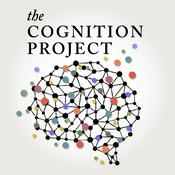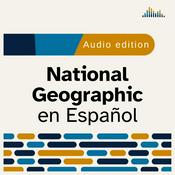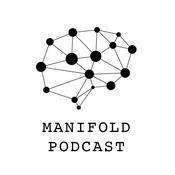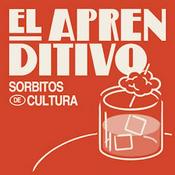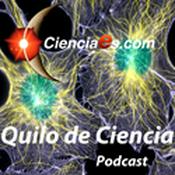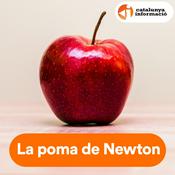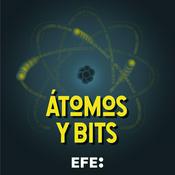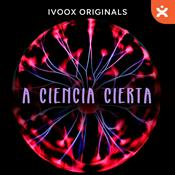Smart Biotech Scientist | Master Bioprocess CMC Development, Biologics Manufacturing & Scale-up, Cell Culture Innovation
David Brühlmann - CMC Development Leader, Biotech C-level Advisor, Business Strategist

Último episodio
228 episodios
227: Media-Based Glycan Engineering for Biosimilars: Achieving Reference Product Match
10/2/2026 | 16 minWhen your biosimilar analytical data shows 1.4% high mannose against a 6% reference product specification, you face limited options: process temperature shifts that compromise titer, kifunensine supplementation that requires extensive regulatory justification, or 12-18 months to reclone and revalidate. Media supplementation offers an alternative pathway—tuning glycan profiles through formulation adjustments rather than cell line or process re-engineering.
In this episode, David Brühlmann presents the experimental development of a media supplementation strategy that achieved 2.8-fold increases in high mannose glycans across multiple CHO cell lines. Drawing from research published in the Journal of Biotechnology (2017, 252:32-42), the discussion covers the mechanism of raffinose-mediated glycan processing arrest, the experimental variables that initially obscured the effect, and the process development considerations for implementing media-based glycan tuning.
The episode examines N-glycan biosynthesis in CHO cells, regulatory comparability requirements for biosimilar glycosylation profiles, and the experimental framework for evaluating media supplementation as a glycan control strategy.
Highlights from the episode:
The unexpected link between dietary raffinose and reduced athletic performance, and its connection to bioprocessing (01:11)
A clear primer on the importance of glycosylation for biosimilar drugs and regulatory approval (02:43)
Common challenges when glycan profiles don't match reference products, and why high mannose glycans matter (04:19)
A review of industry strategies (temperature shifts, enzyme inhibitors, cell line reengineering) and their pitfalls (05:33)
Mechanistic insights into how raffinose alters glycan processing in CHO cells (07:05)
Key experimental findings on raffinose concentration, osmolality control, and practical lab troubleshooting (09:48)
Application stories and regulatory considerations for implementing raffinose-based media adjustments (13:47)
Closing thoughts on process optimization, regulatory impact, and what to expect in Part 2 (15:11)
Strategic insight:
Implementing raffinose as a media supplement is straightforward, regulatory-friendly, and cost-effective. It does not involve genetic engineering or enzyme inhibitors and is easily sourced as a GMP-grade material. For programs approaching submission with glycan comparability gaps, media-based tuning offers a process optimization pathway that maintains existing cell lines and manufacturing platforms while addressing critical quality attribute specifications.
Listen to this episode of the Smart Biotech Scientist Podcast to learn David’s best strategies for rapid, regulatory-friendly glycosylation control.
If you want to transform your glycoengineering workflow, keep an eye (and ear) out for the next episode of the Smart Biotech Scientist Podcast. Your path to regulatory success might be as simple as a pinch of raffinose.
Resources: Journal of Biotechnology, 2017, volume 252, pages 32 to 42
Next step:
Need fast CMC guidance? → Get rapid CMC decision support here
Support the show226: Mastering Radiopharmaceutical Development: Preclinical Model Selection for Clinical Success with Bryan Miller - Part 2
05/2/2026 | 16 minHard-to-treat cancers like pancreatic ductal adenocarcinoma (PDAC) have long defied conventional therapies. Radiopharmaceuticals, combining targeted therapy with diagnostic power, are creating new opportunities in precision oncology.
Host David Brühlmann speaks with Bryan Miller of Crown Bioscience, who explains how Crown's strategic partnerships, rigorous quality standards, and adaptive study design are shaping radiopharmaceutical development—delivering speed, safety, and real clinical impact.
In this episode, you'll learn:
The promise and practical implications of theranostics—agents used for both diagnosis and treatment (02:44)
Definitions and distinctions between CDX (cell line-derived xenograft) and PDX (patient-derived xenograft) models, and why PDX models better recapitulate tumor heterogeneity (05:11)
Strategies for building more predictive, clinically relevant research models (06:09)
Balancing rapid innovation with rigorous quality standards—why robust QC systems enable speed without compromising safety (08:01)
Key advice for scientists entering radiopharmaceutical development, including how to choose the right research partners (09:53)
Why effective collaboration between biotech companies and CROs is akin to a well-chosen partnership (10:50)
The future outlook for radiopharmaceuticals and their impact on hard-to-treat cancers (12:21)
Strategic insight:
Focusing on theranostic radiopharmaceuticals—agents that combine diagnostics and therapy—offers a high-impact strategy for hard-to-treat cancers like PDAC. By enabling simultaneous patient stratification and targeted treatment, theranostics can accelerate development, improve clinical outcomes, and create a competitive advantage in areas where traditional therapies are limited.
Where do you see radiopharmaceuticals and advanced preclinical models making the biggest impact in oncology or beyond?
Explore the full conversation to learn how Bryan Miller and Crown Bioscience are scaling innovation for the next generation of cancer therapies.
Connect with Bryan Miller:
LinkedIn: www.linkedin.com/in/bryan-miller-148344aa
Crown Bioscience: www.crownbio.com
Next step:
Need fast CMC guidance? → Get rapid CMC decision support here
Support the show225: Mastering Radiopharmaceutical Development: Preclinical Model Selection for Clinical Success with Bryan Miller - Part 1
03/2/2026 | 17 minImagine treating cancer with the precision of a guided missile—delivering radioactive payloads directly to tumor cells. Radiopharmaceuticals are reshaping cancer diagnostics and therapy by pairing tumor-targeting molecules with radioisotopes for diagnosis or therapy. But what does it really take to develop these therapies, and why is interest from scientists, biotech companies, and pharma accelerating?
In this episode, we're joined by Bryan Miller, Director of Scientific and Technical Operations at Crown Bioscience UK. From a PhD in cardiac disease to leading preclinical oncology and radiopharmaceutical programs, Bryan brings hands-on insight into building advanced cancer models and translating innovative therapies from bench to clinic.
Topics discussed include:
Bryan Miller's path from cardiac disease research to leading preclinical cancer model development (03:03)
Crown Bioscience's comprehensive cancer model platforms, from organoids to PDX and humanized in vivo models (04:05)
How radiopharmaceuticals differ from traditional chemotherapies in terms of safety and speed, including the concept of theranostics (07:32)
The reasons behind the surge of interest in radiopharmaceuticals within science and industry (09:04)
The importance of selecting the right preclinical model for success—and how AI and data-driven approaches will shape future workflows (10:11)
Critical pitfalls and unique technical challenges in radiopharmaceutical drug development (12:46)
Crown Bioscience's collaborative approach with Medicines Discovery Catapult to navigate the complexities of radiopharmaceutical research (13:35)
The diverse client needs, from small startups to global pharma companies, and how mature their development programs can be (14:20)
Strategies for scaling preclinical and translational capabilities to meet growing demand in radiopharmaceutical studies (16:04)
Strategic insight:
Radiopharmaceutical success requires integrated design from the start—combining precise model selection, targeting strategy, isotope choice, linker chemistry, and rigorous QC. Programs that establish this comprehensive foundation early move faster and with higher translational confidence than those addressing these elements sequentially or treating any aspect as a downstream refinement.
If you're curious about the real challenges of drug development, the rise of theranostics, and how data-driven approaches (including AI) are shaping preclinical workflows, this episode delivers actionable strategies and insider perspectives for scientists and biotech innovators alike.
Connect with Bryan Miller:
LinkedIn: www.linkedin.com/in/bryan-miller-148344aa
Crown Bioscience: www.crownbio.com
Next step:
Need fast CMC guidance? → Get rapid CMC decision support here
Support the show224: From Cultivated Meat to Chocolate: Rethinking Cellular Agriculture Scale-Up with Steven Lang - Part 2
29/1/2026 | 16 minThe cultivated meat industry has captured headlines and struggled with economics. Meanwhile, plant cell biomanufacturing is quietly solving the cost equation and approaching commercial launch. The question isn't whether cellular agriculture can work at scale. It's which applications will get there first, and what bioprocessing innovations will make it possible.
In Part 2, we dive into the commercialization challenges that separate laboratory curiosity from market-ready products. Steven Lang tackles the hard questions: How do you replicate chocolate's complex flavor profile without traditional fermentation? What analytical infrastructure ensures product consistency and safety? And how do you build the right team and data foundation to navigate the journey from premium launch to commodity-scale production?
Steven's background spanning Johnson & Johnson, Genentech, and Upside Foods gives him a unique perspective on what works and what doesn't when translating biopharma rigor to food applications. At California Cultured, he's applying those lessons to launch high-flavanol cocoa powder in 2026, with a clear roadmap to commodity cocoa and coffee thereafter.
In this episode:
The challenge of replicating chocolate’s taste and fermentation in the lab (02:39)
How plant cell culture differs from conventional farming and its advantages for safety and scalability (03:03)
Analytical methods and equipment needed for consistent, safe, and high-quality cultured cocoa products (05:05)
The potential for cell-based food to minimize heavy metals and other contaminants in chocolate (06:09)
Environmental implications: tackling climate change, deforestation, and the realistic timeline for widespread adoption of lab-grown foods (06:50)
Emerging opportunities beyond cocoa and coffee—saffron, ginseng, echinacea, and even lab-grown wood (08:40)
Key advice for scientists and entrepreneurs interested in entering the cellular agriculture field (10:12)
Building successful teams and robust data foundations in biotech startups (11:43)
Key takeaway:
Cellular agriculture's future isn't a single technology replacing conventional food production. It's multiple parallel approaches creating resilience in global food systems. The opportunity is clear: the technical principles you've mastered in biopharma translate directly to food applications, but the faster commercialization timelines and novel business models require rethinking what "stage-appropriate development" means.
The question for bioprocess leaders is whether you'll help build the solutions to bridge the food production gap, or watch from the sidelines as food security becomes the defining challenge of our generation.
Here is the previous conversation with Steven Lang:
Episodes 55-56: Cultivated Meat: A Promising Future or an Inevitable Bubble? with Steven Lang
Connect with Steven Lang:
LinkedIn: www.linkedin.com/in/steven-lang-b003406
California Cultured Inc.: www.cacultured.com
Next step:
Need fast CMC guidance? → Get rapid CMC decision support here
Support the show223: From Cultivated Meat to Chocolate: Rethinking Cellular Agriculture Scale-Up with Steven Lang - Part 1
27/1/2026 | 27 minWhat if the chocolate industry's reliance on equatorial farms—and the deforestation that comes with it—could be eliminated entirely? Plant cell bioreactors are doing that, producing real cacao without a single tree. But this isn't just about chocolate. It's about fundamentally rethinking how we manufacture food at scale, and the bioprocessing innovations emerging from this shift have implications far beyond the food industry.
Steven Lang, Head of R&D at California Cultured, spent two decades mastering mammalian cell culture at biopharma giants like Johnson & Johnson and Genentech. Then he made a radical pivot: applying those same bioprocessing principles to cultivate plant cells for food production. His mission? Prove that cellular agriculture extends far beyond the cultivated meat narrative, and that plant cell manufacturing offers a faster, more economical path to market.
At California Cultured, Steven's team is scaling cacao and coffee production using innovative low-cost plastic bioreactors instead of expensive stainless steel vessels. They've engineered plant cell media formulations that operate at a fraction of typical bioprocessing costs. And they're preparing to launch their first commercial product—high-flavanol cocoa powder—in 2026.
What you'll discover in this episode:
Why cellular agriculture ≠ cultivated meat (07:16) – Steven's frustration with the narrow definition that's holding the industry back, and why plant cell culture deserves equal attention
Plant vs. animal cell culture fundamentals (09:26) – Technical comparison: totipotent plant cells, callus formation, adaptation to suspension culture, and how cacao cell lines are developed from explants
Achieving 30-40% pack cell volume in 7-day batches (11:14) – Process parameters: ambient temperature growth, low pH environments, minimal downstream processing, and maintaining product consistency without genetic modification
The economics that change everything (14:38) – How plant cell media costs and simple raw material requirements create commodity-scale economics
The Tesla model for biotech (15:58) – Strategic rationale for launching with premium high-flavanol cocoa powder first, then using that revenue runway to optimize for commodity pricing
Low-cost bioreactor innovation (18:23) – Why plastic vessels beat stainless steel, contamination management in low-pH cultures, and scale-out strategy over traditional scale-up
Decentralized biomanufacturing (23:10) – Converting underutilized office space into production facilities, onshoring food ingredient production, and what this means for emerging markets and supply chain resilience
The bigger picture beyond cacao (24:23) – Four approved drugs already produced via plant cell culture, the expanding landscape of ingredients (saffron, ginseng, echinacea), and why stage-appropriate models matter for cellular agriculture's future
The strategic insight:
While the cultivated meat industry struggles with cost structures and consumer acceptance, plant cell manufacturing is quietly proving the business model. The lesson for bioprocessing professionals? Sometimes the fastest path to commercialization isn't the most obvious one, and the innovations happening in food manufacturing today could reshape how we think about bioproduction economics across industries.
Here is the previous conversation with Steven Lang:
Episodes 55-56: Cultivated Meat: A Promising Future or an Inevitable Bubble? with Steven Lang
Connect
One bad CDMO decision can cost you two years and your Series A. If you're navigating tech transfer, CDMO selection, or IND prep, let's talk before it gets expensive. Two slots open this month.
Support the show
Más podcasts de Ciencias
Podcasts a la moda de Ciencias
Acerca de Smart Biotech Scientist | Master Bioprocess CMC Development, Biologics Manufacturing & Scale-up, Cell Culture Innovation
The Go-to Podcast for Biotech Scientists Who Want to Master Biopharma CMC Development and Biomanufacturing.**TOP 10 LIFE SCIENCES PODCAST**Are you ready to simplify bioprocess development and scale with confidence to reduce time to market?Are you feeling overwhelmed by the complexity and guesswork of biologics development and biomanufacturing?Do you wish you had more time to enjoy the beauty of science, without worrying about failing your cell culture process development and commercialization?There's a way to simplify and streamline so you can remove complexity, skip trials and errors, deliver your groundbreaking therapy to clinics and market without delay, and still enjoy every single step.I'm David Brühlmann, a biotech entrepreneur and strategic advisor who partners with C-level biopharma leaders to tackle one of our industry's biggest challenges: reducing manufacturing costs to make lifesaving therapies accessible to more patients worldwide.Through engaging conversations with industry pioneers and practical insights from the trenches, this podcast tackles the critical challenges in bioprocess CMC development and manufacturing of recombinant proteins and cell and gene therapy products. We cut through the complexity so you can:Master bioprocess development with confidence and clarityExcel at scale-up and manufacturing of biologicsTransform your innovative therapy and manufacturing technology into market-ready solutions fasterOptimize manufacturing costs without compromising qualityMake data-driven decisions that reduce the risk of failureI can’t wait to help you do biotech the smart way.Grab a cup of coffee and your favorite notebook and pen. Now is the time to take your bioprocessing game to the next level.Ready to transform your biomanufacturing journey? Let's dive in!Next Steps:Book a free call to reduce biomanufacturing costs and make lifesaving therapies more accessible: https://bruehlmann-consulting.com/call🧬 Ready to accelerate your IND timeline? Get the proven CMC Dashboard that's guided successful mAb programs from chaos to submission: https://stan.store/SmartBiotech/p/cmc-dashboard-for-biotech-foundersAccelerate biologics development with expert guidance: https://bruehlmann-consulting.comFor sponsorship opportunities, contact us at [email protected] the Website: https://smartbiotechscientist.comEmail us: [email protected]
Sitio web del podcastEscucha Smart Biotech Scientist | Master Bioprocess CMC Development, Biologics Manufacturing & Scale-up, Cell Culture Innovation, Espacio en blanco y muchos más podcasts de todo el mundo con la aplicación de radio.es

Descarga la app gratuita: radio.es
- Añadir radios y podcasts a favoritos
- Transmisión por Wi-Fi y Bluetooth
- Carplay & Android Auto compatible
- Muchas otras funciones de la app
Descarga la app gratuita: radio.es
- Añadir radios y podcasts a favoritos
- Transmisión por Wi-Fi y Bluetooth
- Carplay & Android Auto compatible
- Muchas otras funciones de la app


Smart Biotech Scientist | Master Bioprocess CMC Development, Biologics Manufacturing & Scale-up, Cell Culture Innovation
Escanea el código,
Descarga la app,
Escucha.
Descarga la app,
Escucha.















